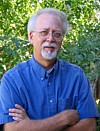
Abbreviating history is the common practice of our day. The following introduction to Dartmouth College's antiquity mentions Samson Occom, the Mohegan Indian who was largely responsible for donating a substantial sum necessary to ensure the school's survival. It doesn't mention the story of how the money came into his hands.
-- from Dartmouth College's website:
"The Reverend Eleazar Wheelock, a Congregational minister from Connecticut, founded Dartmouth College in 1769. He had earlier established Moor's Charity School in Lebanon, Connecticut, principally for the education of Native Americans. In seeking to expand his school into a college, Wheelock relocated his educational enterprise to Hanover, in the Royal Province of New Hampshire. The move from Connecticut followed a lengthy and sometimes frustrating effort to find resources and secure a charter. Samson Occom, a Mohegan Indian and one of Wheelock's first students, was instrumental in raising substantial funds for the College. The Royal Governor of New Hampshire, John Wentworth, provided the land upon which Dartmouth would be built and on December 13, 1769, conveyed the charter from King George III establishing the College. That charter created a college "for the education and instruction of Youth of the Indian Tribes in this Land ... and also of English Youth and any others." Named for William Legge, the Second Earl of Dartmouth — an important supporter of Eleazar Wheelock's efforts — Dartmouth is the nation's ninth oldest college and the last institution of higher learning established under Colonial rule."
The following is from the book The Prince of Pulpit Orators, A Portraiture of Rev. George Whitefield, M.A., by J.B. Wakeley, 1871.
"Whitefield once visited the Indian school at Lebanon, which was under the care of Doctor Whelock. He was delighted with the school, which he looked upon as a 'promising nursery for future missionaries.' Here he had an interview with an Indian preacher by the name of Sampson Occum [sic], whom he much admired, whom he invited to go to England for the purpose of raising funds for the Indian seminary. Sampson Occum was a remarkable man for a son of the forest. He was a descendant of Uncas, the celebrated chief of the Mohegans. At the age of seventeen Occum was converted under the labors of Whitefield and Gilbert Tennant. He was for four years a scholar in Dr. Wheelock's school for the benefit of the Indians, and afterward a teacher there for eleven years. In 1759 he was ordained; and in 1766, in company with Rev. Mr. Whitecar, he went to England to raise funds for the school.
"Whitefield welcomed them there, and threw his whole soul into the enterprise. Whitefield was delighted with Occum's spirit and with his preaching, and introduced him into his pulpits and to his friends who were wealthy. He was very successful in raising funds, and as no American Indian had ever before preached in England, curiosity led thousands to hear him. He preached to crowded audiences several hundred times. Dr. Dwight, among other notable persons, heard him, and pronounced him eloquent. At Kidderminster the people were so moved and melted under his appeals that, not satisfied with contributing once, they passed the plate around and took up a second collection.
"Occum and his colleague brought back from England more than forty-five thousand dollars for the school. [An equivalent of over $1 million in today's dollars using the Consumer Price Index, but over $22 million based on an unskilled worker's wage - for the year 1774, but this was in 1767] It was through Whitefield's influence that Lord Dartmouth became its friend and patron, and so influenced the King [of England] that he contributed his thousands. The Indian school was merged in Dartmouth College, of which institution Mr. Wheelock was the first president. We here find Whitefield's name connected with Dartmouth College, Hanover, New Hampshire, as well as with that of Nassan Hall, Princeton. Americans hardly know how deeply they are indebted to Whitefield, and what gratitude they owe him.
"Occum was a wit, but he used his powers for the furtherance of the truth. It is said that once, while holding a controversy with a Universalist [who believes there is no hell and all will be redeemed and go to heaven], he concluded by saying, 'Well, well, remember, if you are correct, I am safe; if you are not correct, I am safe. I have two strings to my bow, you have but one.'
"He died in July, 1792, at New Stockbridge, N.Y., and over three hundred weeping Indians followed this distinguished preacher to the grave. His name is interwoven with the history of his country, and the history of Dartmouth College. How few, alas! of his race have a history like his!"


No comments:
Post a Comment